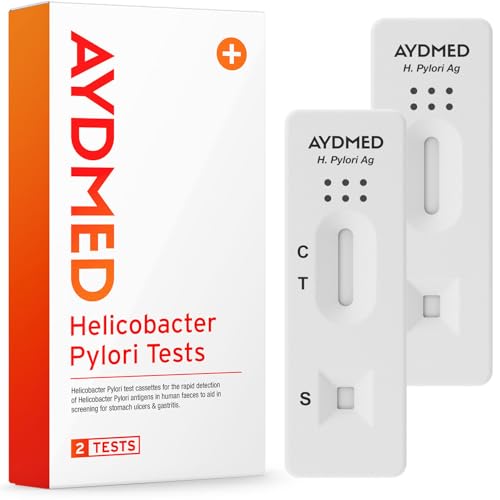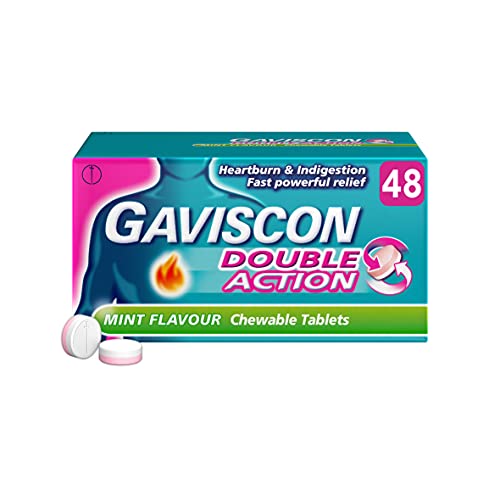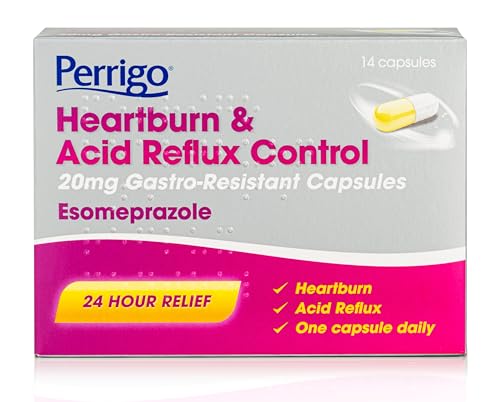Are you experiencing discomfort in your stomach? Are you constantly plagued by indigestion, bloating, or a burning sensation? If so, you may be suffering from gastritis. But fret not! In this comprehensive guide, we will delve into the world of gastritis – exploring its causes, symptoms, and most importantly, how to effectively treat it. So grab a cup of soothing herbal tea and let's embark on a journey to understanding and conquering gastritis together!
What is Gastritis?
Gastritis is a condition that occurs when the lining of the stomach becomes inflamed. The stomach lining plays a crucial role in protecting the organ from gastric acid and digestive enzymes, but various factors can disrupt this delicate balance and lead to inflammation.
There are different types of gastritis, including acute gastritis which is short-term and often caused by an infection or certain medications. Chronic gastritis, on the other hand, lasts for a longer period and can be linked to conditions like autoimmune disorders or long-term use of nonsteroidal anti-inflammatory drugs (NSAIDs).
The symptoms of gastritis can vary from person to person. Some people may experience abdominal pain or discomfort, bloating, nausea, vomiting, or even loss of appetite. In severe cases, there may be blood in vomit or stool.
If left untreated, gastritis can lead to complications such as ulcers or even stomach cancer in rare cases. Therefore it's important to seek medical attention if you suspect you have gastritis.
Diagnosing gastritis usually involves a combination of medical history evaluation, physical examination, and sometimes additional tests such as blood tests or endoscopy.
Stay tuned for our next section where we explore the causes behind this unpleasant condition!
Gastritis Relief Products
 The Gastritis Healing Book: A Comprehensive Guide...
£11.99
The Gastritis Healing Book: A Comprehensive Guide...
£11.99
 One Step H. Pylori Home Test Kit – Helicobacter...
£4.99
One Step H. Pylori Home Test Kit – Helicobacter...
£4.99
 2 x AYDMED Helicobacter Pylori Tests | H Pylori...
£9.99
2 x AYDMED Helicobacter Pylori Tests | H Pylori...
£9.99
Gastritis Relief Natural
 Vegavero Reflu-X Complex | Natural Antacid |...
£19.99
Vegavero Reflu-X Complex | Natural Antacid |...
£19.99
 Stomach Ulcer Healing Tea - Relief Gastritis and...
£34.99
Stomach Ulcer Healing Tea - Relief Gastritis and...
£34.99
 Renorm PhytoConcentrate 50ml - Natural Plant...
£9.95
Renorm PhytoConcentrate 50ml - Natural Plant...
£9.95
Causes of Gastritis
Gastritis, a condition characterized by inflammation of the stomach lining, can be caused by various factors. One common cause is infection with the bacteria known as Helicobacter pylori (H. pylori). This bacterium damages the protective layer of mucus in the stomach, leading to irritation and inflammation.
Another possible cause of gastritis is prolonged use of nonsteroidal anti-inflammatory drugs (NSAIDs) such as aspirin or ibuprofen. These medications can irritate the stomach lining and increase the risk of developing gastritis.
Excessive alcohol consumption is also a known culprit for causing gastritis. Alcohol irritates and erodes the stomach lining over time, making it more susceptible to inflammation.
Stress and anxiety may not directly cause gastritis but can exacerbate symptoms in individuals who are already prone to developing this condition. The exact mechanism behind this relationship is still being studied, but it is believed that stress hormones may affect digestion and increase acid production in the stomach.
Certain autoimmune disorders like pernicious anemia or Crohn's disease can lead to chronic gastritis as well.
It's important to remember that each individual's susceptibility to gastritis varies based on their lifestyle choices and genetic makeup. By understanding these potential causes, we can take steps towards preventing or managing this uncomfortable digestive issue effectively.
Symptoms of Gastritis
Gastritis is a condition that can cause a range of uncomfortable symptoms. While the severity and frequency of these symptoms may vary from person to person, it's important to be aware of the common signs that could indicate gastritis.
One of the most common symptoms of gastritis is abdominal pain or discomfort. This pain can range from mild to severe and may be described as a burning or gnawing sensation in the upper abdomen. Some people may also experience bloating or a feeling of fullness after eating.
Another symptom is nausea and vomiting, which can occur occasionally or persistently. These episodes are often accompanied by a loss of appetite and weight loss.
In some cases, gastritis can lead to gastrointestinal bleeding, resulting in black stools or vomit that contains blood. This requires immediate medical attention.
Other less specific symptoms include indigestion, belching, and hiccups. Additionally, some individuals with gastritis may experience fatigue or weakness due to anemia caused by chronic bleeding.
If you notice any persistent or concerning symptoms related to your digestive system, it's essential to consult with your healthcare provider for an accurate diagnosis and appropriate treatment plan tailored specifically for you.
Treatment for Gastritis
When it comes to treating gastritis, the approach can vary depending on the underlying cause and severity of the condition. In most cases, treatment involves a combination of lifestyle changes, medication, and sometimes even surgery.
First and foremost, your doctor may recommend making certain lifestyle modifications to help alleviate symptoms and promote healing. This could involve avoiding irritating foods that trigger inflammation in the stomach lining, such as spicy or acidic foods. You might also be advised to limit alcohol consumption and quit smoking if applicable.
In addition to these dietary adjustments, over-the-counter antacids or prescription medications may be prescribed to reduce stomach acid production or neutralize existing acid in order to provide relief from symptoms. It's important to follow your doctor's instructions carefully when taking any medication.
For more severe cases of gastritis or those caused by an infection like H.pylori bacteria, antibiotics may be prescribed. These medications are designed specifically to target and eradicate bacterial infections in the stomach.
If other treatments prove ineffective or if complications arise from chronic gastritis such as bleeding ulcers or strictures (narrowing of the stomach), surgery may be required as a last resort option.
Remember that prompt diagnosis and appropriate treatment are key factors in managing gastritis effectively. Always consult with a healthcare professional for proper evaluation and guidance tailored specifically for you
Diet for Gastritis
Diet plays a crucial role in managing and preventing gastritis. By making some simple changes to your eating habits, you can alleviate symptoms and promote the healing process.
It's important to avoid foods that irritate the stomach lining. This includes spicy or acidic foods, such as citrus fruits and tomatoes. Fried and fatty foods should also be minimized, as they can increase inflammation in the digestive system.
Instead, focus on incorporating more anti-inflammatory foods into your diet. Opt for lean proteins like fish and poultry, which are easier on the stomach. Whole grains like brown rice and oats provide fiber without causing irritation.
Probiotics are another key component of a gastritis-friendly diet. These beneficial bacteria help restore balance to the gut microbiome. Yogurt with live cultures, kefir, sauerkraut, and kimchi are all excellent sources of probiotics.
Additionally, try drinking herbal teas like chamomile or ginger tea after meals to soothe inflammation in the digestive tract. Stay hydrated by consuming plenty of water throughout the day.
Remember that everyone's body is different – what works for one person may not work for another when it comes to gastritis management through diet. It's best to consult with a healthcare professional or registered dietitian who can provide personalized guidance based on your specific needs.
Prevention of Gastritis
Gastritis can be a painful and uncomfortable condition, but there are steps you can take to help prevent it from occurring in the first place. By adopting healthy habits and making lifestyle changes, you can reduce your risk of developing gastritis.
One important aspect of prevention is maintaining a balanced diet. Avoiding foods that irritate the stomach lining, such as spicy or acidic foods, can help prevent gastritis. Instead, opt for a diet rich in fruits, vegetables, whole grains, lean proteins and healthy fats. It's also essential to stay hydrated by drinking plenty of water throughout the day.
Another crucial factor in preventing gastritis is managing stress levels. High levels of stress can increase acid production in the stomach and contribute to inflammation. Engaging in stress-reducing activities like exercise, meditation or spending time with loved ones can help keep symptoms at bay.
Additionally, quitting smoking and limiting alcohol consumption are vital steps towards preventing gastritis. Both smoking and excessive alcohol intake have been linked to an increased risk of developing this condition.
Practicing good hygiene habits such as washing hands thoroughly before eating or preparing food is essential for preventing infections that may lead to gastritis.
By incorporating these preventive measures into your daily routine, you can significantly reduce your chances of experiencing the discomfort caused by gastritis.
Take away..
Gastritis is a common condition that affects many people around the world. It can be caused by various factors such as bacterial infections, excessive alcohol consumption, and prolonged use of nonsteroidal anti-inflammatory drugs (NSAIDs). The symptoms of gastritis can range from mild discomfort to severe pain and can greatly impact one's quality of life.
Fortunately, there are several treatment options available for gastritis. These include medications to reduce stomach acid production, antibiotics to treat bacterial infections, and lifestyle changes such as avoiding trigger foods and managing stress. It is important to consult with a healthcare professional for an accurate diagnosis and appropriate treatment plan.
In addition to medical interventions, adopting a healthy diet can also play a crucial role in managing gastritis. A diet for gastritis typically involves avoiding spicy foods, acidic beverages, caffeine, alcohol, and fatty or fried foods. Instead, focus on consuming high-fiber foods like fruits and vegetables, lean proteins such as fish and poultry, whole grains, and probiotic-rich foods like yogurt.
Prevention is key when it comes to gastritis. Taking steps to maintain a healthy lifestyle including eating a balanced diet filled with nutritious foods while avoiding triggers like alcohol or NSAIDs can help reduce the risk of developing this condition. Additionally, practicing good hygiene habits such as washing hands regularly can help prevent certain types of bacterial infections that may lead to gastritis.
In conclusion,Gastritis is not something that should be ignored or taken lightly. If you experience persistent symptoms such as abdominal pain or indigestion,it is important to seek medical attention for proper diagnosis and treatment.
It's always better safe than sorry!
Bloating relief Products
 7 Day Colon Cleanse & Detox | Supports Bloating...
£9.99
7 Day Colon Cleanse & Detox | Supports Bloating...
£9.99























